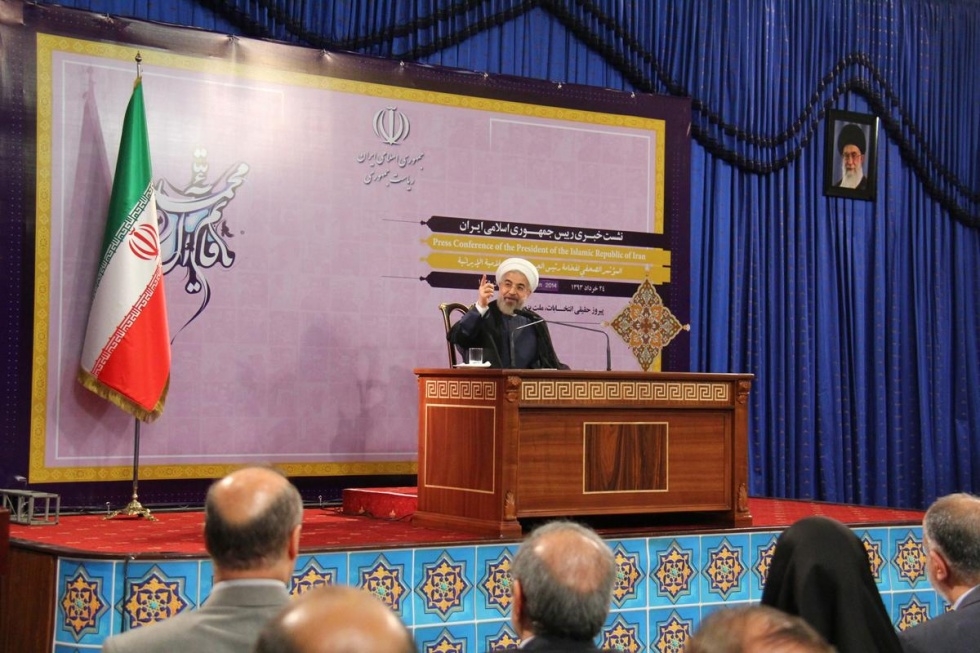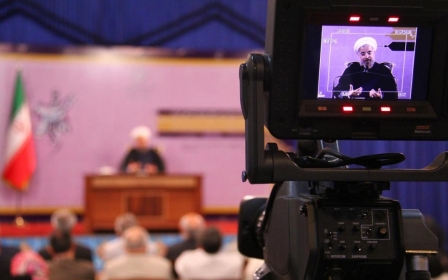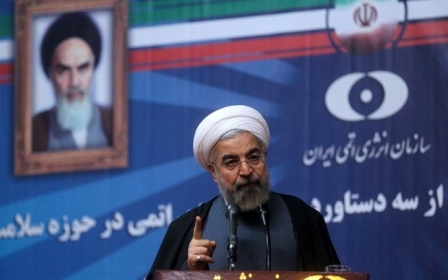US: Iran sent 'small numbers' of operatives into Iraq

Iran has sent "small numbers" of operatives into Iraq to bolster the Shiite-led government in Baghdad, but there is no sign of a large deployment of army units, the Pentagon said Friday.
The comments by spokesman Admiral John Kirby marked the US government's first public confirmation that Iranian operatives had crossed into Iraq, where the Baghdad government is struggling to counter the swift advance of Sunni militants.
"There are some Iranian revolutionary operatives in Iraq but I've seen no indication of ground forces or major units," Kirby told a news conference, apparently referring to Tehran's Quds force, the covert arm of the Revolutionary Guard Corps.
This came following a vow by Iranian President Hassan Rouhani that Tehran would do whatever it takes to protect Shiite holy sites in Iraq.
When US troops occupied Iraq between 2003 and 2011, Washington accused Tehran of using the Quds force to support Shiite militias attacking American soldiers.
"Their interference in Iraq is nothing new," Kirby said.
But the United States and Iran now find themselves sharing a common interest in helping Iraqi Prime Minister Nuri al-Maliki fend off the onslaught by Sunni militants.
The Pentagon offered no further details on the nature of the Iranians' presence or their operations, amid media reports that Tehran had launched a concerted effort to shore up Iraqi forces.
"I'll let the Iranians speak for their activities," Kirby said.
"We have indications that there are at least some operatives inside Iraq," he said, saying the alleged deployment amounted to "small numbers" of agents.
Some Iraqi army and police units have collapsed against militant fighters, in some cases ditching their uniforms and weapons before fleeing.
The rapid offensive by militants, which has overrun swathes of northern and central Iraq, has alarmed Tehran -- which has close ties to the Maliki government -- as well as Washington.
Western diplomats say Qassem Suleimani, commander of the Quds Force, has travelled to Baghdad to advise Maliki in the crisis.
Iran has previously sent military advisers to Syria to aid President Bashar al-Assad's regime against rebel forces.
President Barack Obama announced Thursday plans to send up to 300 US military advisers to Iraq but stopped short of ordering air strikes against militants, though he left the door open to that possibility.
Iran Deputy Foreign Minister Hossein Amir Abdollahian dismissed the move as evidence that Obama lacked "serious will" to fight terrorism.
New MEE newsletter: Jerusalem Dispatch
Sign up to get the latest insights and analysis on Israel-Palestine, alongside Turkey Unpacked and other MEE newsletters
Middle East Eye delivers independent and unrivalled coverage and analysis of the Middle East, North Africa and beyond. To learn more about republishing this content and the associated fees, please fill out this form. More about MEE can be found here.



